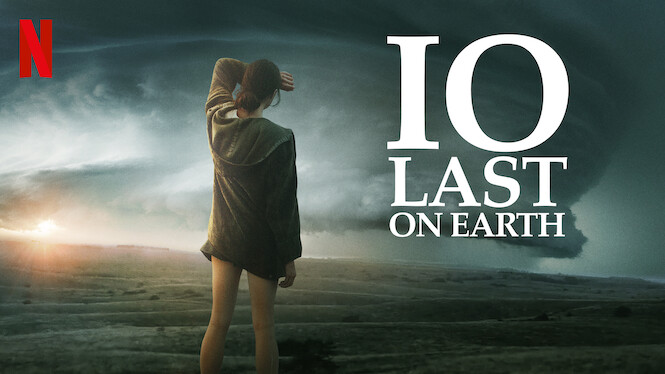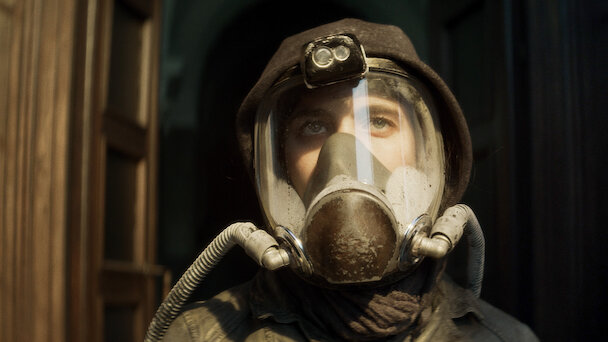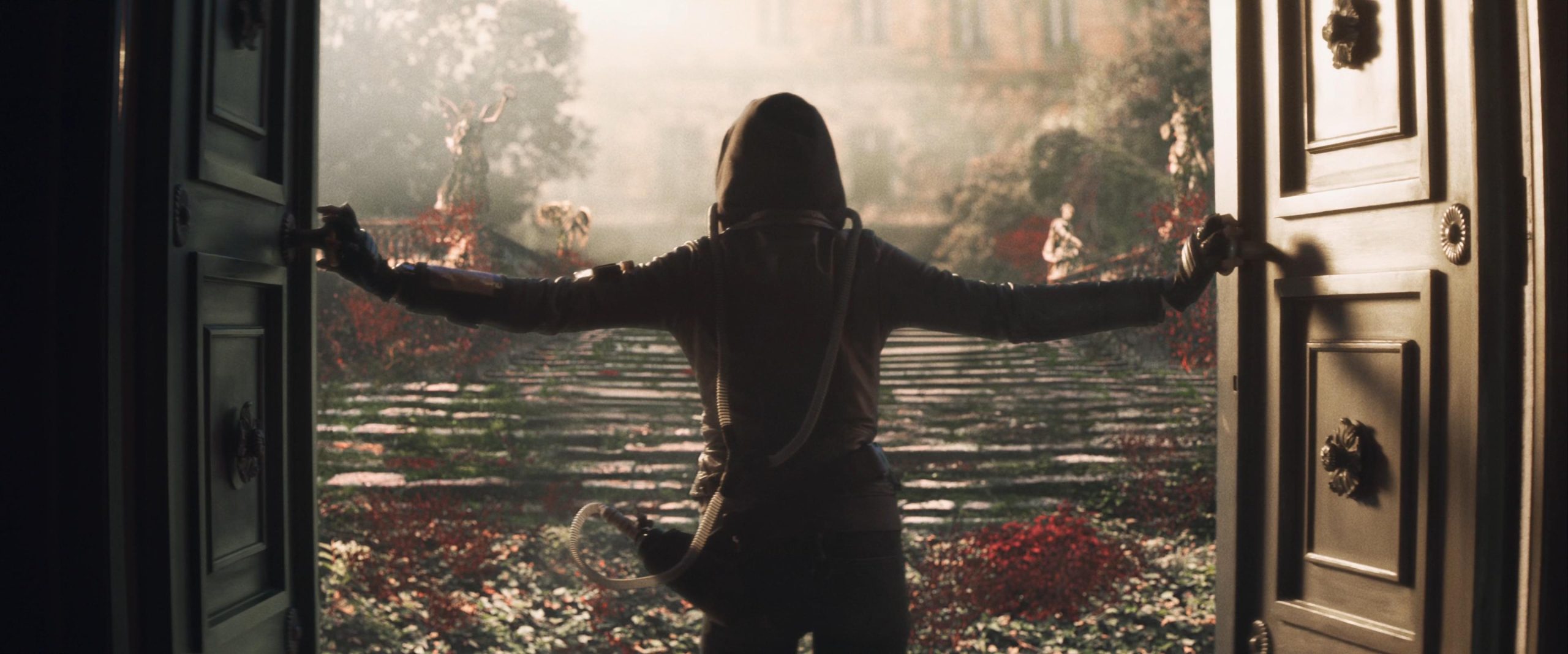IO (2019)

IO (2019), directed by Jonathan Helpert, is a science fiction drama set in a post-apocalyptic future where Earth’s environment has become toxic and nearly uninhabitable. Starring Margaret Qualley and Anthony Mackie, the film takes a thoughtful, introspective approach to its story, focusing on themes of survival, hope, and the legacy of human resilience in the face of environmental catastrophe.
The movie centers on Sam Walden (Margaret Qualley), one of the last remaining humans on Earth. Sam, a young scientist, lives in relative isolation in an elevated outpost, conducting experiments and studying ways to purify the toxic atmosphere. She hopes that her research might one day make Earth livable again. Her father, Dr. Henry Walden, was a well-known scientist and environmentalist who believed that humanity should not abandon Earth. His work inspires Sam to continue searching for solutions, despite the odds.
While most of the surviving human population has fled to a distant space station orbiting Jupiter’s moon Io, Sam remains on Earth. She communicates via radio broadcasts, urging any remaining listeners to join her in believing that Earth can be saved. This belief shapes her daily routine of scientific experiments, radio transmissions, and survival tasks in the desolate landscape, giving the film a meditative, almost solitary feel.
The monotony of Sam’s existence is interrupted when a man named Micah (Anthony Mackie) arrives unexpectedly. Piloting a helium balloon, Micah represents one of the few remaining humans who have not yet fled to the space station. He seeks answers and closure regarding Sam’s father’s message, which was broadcast to encourage people to stay on Earth. Micah’s arrival introduces tension and a sense of urgency to Sam’s life as he reveals that he intends to catch the last shuttle off the planet, urging Sam to come with him.
As the two characters spend time together, their conversations delve into philosophical questions about humanity’s impact on the environment, the ethics of leaving Earth behind, and the hope for a second chance elsewhere. Sam’s reluctance to leave the planet stems from her dedication to continuing her father’s mission, while Micah embodies the practical view that survival may mean abandoning the planet that humans have destroyed. This clash of perspectives gives the film an introspective edge, emphasizing character-driven moments over action or spectacle.
Margaret Qualley delivers a restrained and thoughtful performance as Sam, conveying her character’s loneliness, determination, and quiet strength. Sam is torn between her desire to honor her father’s legacy and her recognition of the near-impossible odds she faces. Anthony Mackie complements her as Micah, offering a more world-weary perspective that challenges Sam’s idealism. Their relationship, while understated, brings warmth and humanity to the otherwise bleak setting.
Visually, IO is striking, capturing both the stark beauty and devastation of Earth’s ruined landscapes. The cinematography highlights the contrast between Sam’s small pocket of life and the vast, uninhabitable world around her. While the film does not rely heavily on special effects, its minimalist approach enhances the sense of isolation and the overwhelming scope of the environmental crisis.
IO is a film that asks its audience to reflect on humanity’s responsibility to the planet and the consequences of environmental neglect. It raises important questions about whether hope can be found in rebuilding what has been destroyed or if humanity’s future lies elsewhere. However, the film’s slow pace and introspective tone may not appeal to viewers seeking a more conventional sci-fi adventure. Instead, it functions as a contemplative drama, focusing on personal stakes and moral dilemmas rather than grandiose battles or high-stakes missions.
While IO received mixed reviews from critics, it stands out as a thought-provoking piece that explores themes of environmentalism, survival, and human resilience. It is a quieter, more reflective take on the sci-fi genre, offering a glimpse into the emotional and philosophical struggles of those left behind in the wake of disaster. For viewers willing to engage with its deliberate pacing and character-driven narrative, IO offers a reflective journey into what it means to hold onto hope in a world that seems beyond saving.











